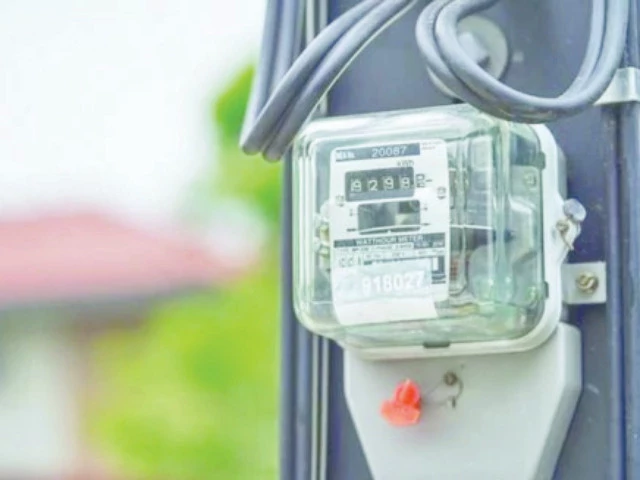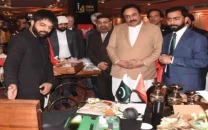Government touts cheaper electricity for factories, but businesses aren't buying it
Industrialists urge government to fix tariff at 9 cents for power consumption plan success

The National Electric Power Regulatory Authority (Nepra) and businessmen have raised questions about the incremental consumption package announced for industrial and agricultural consumers, saying it appears discriminatory, overly complex and may not succeed.
The Power Division emphasised that the package was based on "lessons learnt in the past' and was a result of wisdom. However, the industries rejected the plan and demanded that the price be fixed at nine cents per unit for its successful implementation. They also called for reducing the load factor from 60% to 40%.
An official of the Power Division said that the package would contribute Rs1.16 trillion to the country's gross domestic product (GDP). However, the ministry added that the package may be reviewed or terminated, if marginal cost rose.
The division made a shocking revelation that consumers would be paying Rs1.7 trillion in capacity charges to those power plants that were not generating a single unit, which translated into Rs17 per unit.
It also broke silence over the impact of solarisation, saying that electricity demand had not changed due to net metering. Consumers using a cumulative 1,300 megawatts have exited the national grid and they are off-grid now. In the agriculture sector, electricity demand has dropped 40-50% due to solarisation.
Officials of the Power Division said that demand for electricity had not increased significantly but its consumption shifted from day to night time due to solarisation. Now, peak hours have been extended from 10 pm to morning time. They stressed that the incremental package had been prepared to encourage increase in power consumption for stability of the grid and easing the burden of capacity charges.
Nepra conducted a public hearing on Tuesday to consider the approval of the incremental package announced by the government.
Under the package, electricity will be provided at Rs22.98 per unit to industrial and private agricultural consumers, including both time-of-use (ToU) and non-ToU categories of ex-Wapda distribution companies (DISCOs) and K-Electric, on peak and off-peak incremental consumption over the corresponding reference period.
The reference months for determining the incremental consumption shall be from December 2023 to November 2024. The package will remain in force for three years from the date of approval. It will be subsidy-neutral for both DISCOs and K-Electric consumers.
"We want the industry to run more shifts as it will reduce the capacity burden," a Power Division official said, adding that the drop in demand came in the wake of high tariffs, which encouraged solarisation.
The officials said that solar net metering had crossed 6,000 MW whereas the consumers using 12,000-13,000 MW shifted to off-grid solar.
Owing to low demand, grid stability was at stake, they stressed, adding that the package would address such issues. They dismissed the talk that solarisation had slashed electricity demand.
The officials pointed out that industrial units were shutting down, which also resulted in lower power demand.
Nepra said that industries would remain confused due to uncertainty about tariff adjustment. "We will come to Nepra for review in case marginal cost rises," as the review had been incorporated into the package to hedge against risk to other consumers, the Power Division said. However, it added, there were little chances that the marginal price would increase.
"Have you taken stakeholders on board," Nepra member technical asked. Rehan Jawed, representing the Federation of Pakistan Chambers of Commerce and Industry (FPCCI), said that the package was complicated and the reference period had been fixed for one year, which should be extended to three years.
He added that the electricity cost was higher and the eligibility criteria were complex and called for simplifying the criteria and reducing the cross-subsidy which the industry was bearing. He demanded that the tariff should be slashed from Rs22.98 to Rs16 per unit.
Another intervener Amir Sheikh said that all industries had rejected the package, mentioning that the previous package was successful, when a tariff of nine cents was fixed.
"This is a discriminatory package — some will benefit and some will lose," he emphasised and asked the government to fix tariff at nine cents per unit and reduce the load factor from 60% to 40% for textile, which was the export-oriented sector.
All Pakistan Textile Mills Association (Aptma) representative Syed Absar Ali said that the textile industry also dismissed the package. "No one can increase consumption by more than 15%," he remarked, saying that captive power consumers had been excluded due to high load factor.
"Wheeling consumers have been excluded. They should be given a chance, if they want to come back to the grid," he said and sought a new package to provide equal benefit for all industries.
Industry representative Tanveer Barry said that the package created more confusion. "I don't see this package will continue and it should be reviewed again," he said. "The industry is bearing cross-subsidy, which should be removed. In the current form, this package will not be successful."






















COMMENTS (1)
Comments are moderated and generally will be posted if they are on-topic and not abusive.
For more information, please see our Comments FAQ